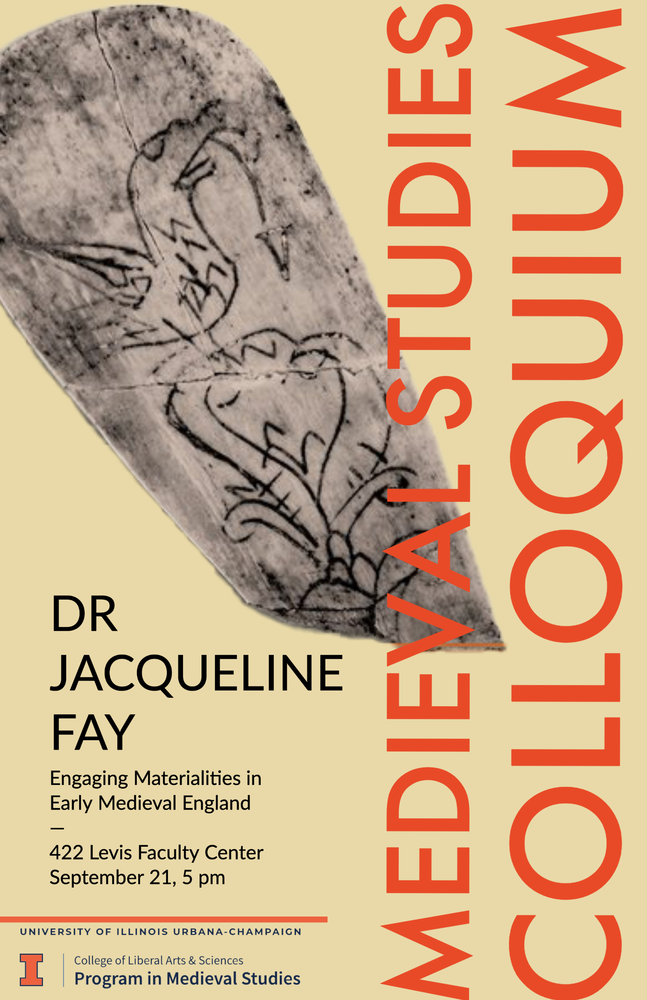
Join us on Wednesday, September 21, for the first meeting of this year's Medieval Studies Colloquium.
This talk asks the question of how, as scholars mainly of written works, we can restore to the story of Englishness the lively material interactions between words, bodies, plants, stones, metals, and soil, among other things, that would have characterized it for the early medieval English themselves. In a series of examples, the talk will consider how early medieval texts work within systems that include climate, soil, landscape features, plants, and animals, and will argue that, without an attempt to recognize these systems, we are at risk of missing the ways that written works resonated with their original audiences.
Wednesday, September 21
5:00 pm
422 Levis Faculty Center
Dr. Fay will also offer a lunchtime workshop for graduate students. The aim of this workshop is to read Old English texts differently by noticing how they work with and within material systems that are traditionally seen as separate from the written realm of ideas and the aesthetics of poetic art in particular. In pursuing this approach, what can we notice that we might have missed before about these texts, the world that produced them, and its (dis)continuities with our own moment? Advance registration is required: https://forms.illinois.edu/sec/1361649498
Readings:
- Soul and Body I and Soul and Body II
- Laura Sanders, “Turning Human Bodies into Compost Works”
- Description of Urban Death Project
- Recompose Life site
Dr. Fay is Associate Professor of English at the University of Texas at Arlington.